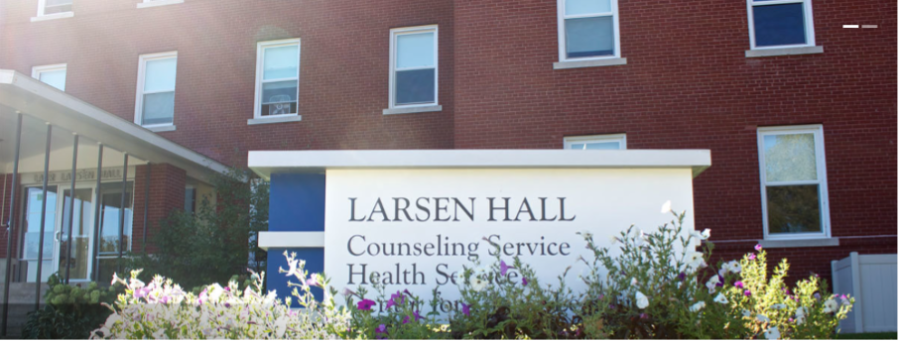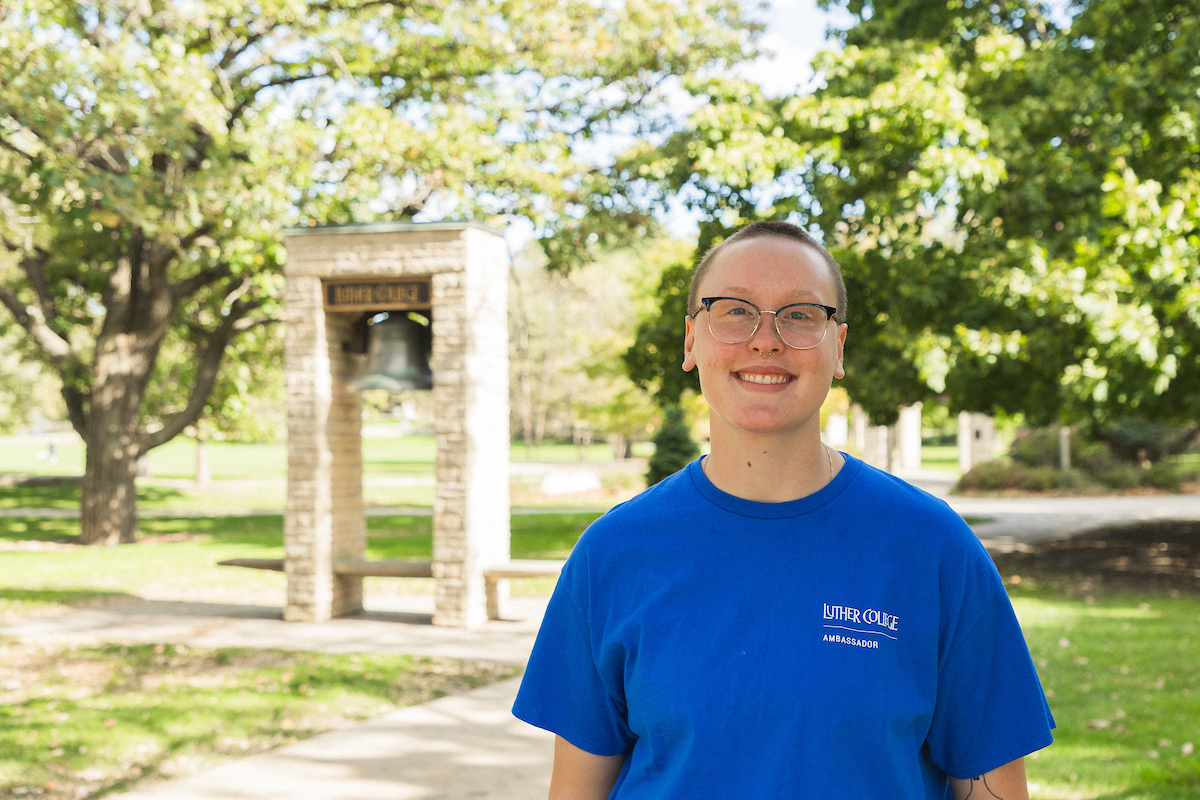Students were sent an email on Thursday, October 24 that announced the temporary closing of Luther College Counseling Services, a decision that was the result of staffing turnover and shortages.
There is one counselor remaining in the department, and the offices of the Provost and Student Engagement are recruiting professionals to join the team. However, few applications have been received. As a temporary replacement for in-person counseling, the the Office of Student Engagement urged students to utilize the mobile app TELUS, crisis or emergency services, WinnMed and Luther Clinic and off-campus counseling services.

Interim Dean of Student Engagement Renee’ T. Watson explained the challenges of the situation.
“As the interim dean for student engagement and someone who cares about student success, I understand the challenges we’re facing, especially in light of the national mental health crisis and the increasing demand for accessible counseling services,” Watson said. “Students’ mental health is a top priority, and I recognize how crucial it is for them to have reliable support. I appreciate the hard work and resilience our team has shown during this time, and I am actively working with the provost and office of the president on strategies to recruit qualified professionals who will join us in supporting our students’ well-being.”
Lydia Marti (‘26), a lead peer coach in the Department of Student Success, expressed her frustration with the way that this situation was handled by Luther administration.
“On one hand, I understand that Luther is not alone in experiencing staffing shortages particularly when it comes to campus health services,” Marti said. “Nor do I [dispute] that this was most likely the result of unforeseen circumstances. At the same time, I am extremely frustrated and concerned with how Luther handled the situation. Mental health services are a necessary part of being an institution within higher education. The prevalence of waitlists over the past semesters proves this. Yet, the lack of compassion and the length of time it took for Luther to make an official statement makes me question if the student body’s mental wellbeing truly is a value of the institution.”
Students currently in counseling were informed of these changes the week of October 7, but communication to the larger campus community was withheld until October 24. Rebecca Zheng (‘27) is concerned about the lack of communication between the administration and campus surrounding this issue.
“If Luther feels inclined to empower students to take care of their mental health, then they should be taking a larger role in providing accessibility to mental health resources,” Zheng said. “This includes clearly communicating their potential inability to do so.”
In an email interview, Watson addressed other potential resources for students on campus.
“Counseling Service has already trained over 90 student staff to serve as Mental Health First Aid in residence life,” Watson said. “This is an excellent resource for students to use.”
Siri Hokanson (‘26) communicated her concerns about the lack of professional experience that friends and resident assistants (RAs) bring to complex mental health situations.
“It will no longer be students turning to professionals when they have issues,” Hokanson said. “It will be them turning to their friends and RAs, who yes, may have advice, but don’t have the training necessary to deal with some of these more volatile solutions like suicide and addiction. You can do training for any of this — about spotting and helping — but at the end of the day, most of the endpoints for that is turning to counseling services, and if we don’t have that, who are students supposed to turn to?”
Luther College Counseling services are included in the cost of tuition. Off-campus counseling and therapy services create barriers for many students, who are on their parents’ insurance, have no insurance, have no transportation or are generally feeling apprehensive about seeking therapy. Marti elaborated on this.
“Forcing students to seek counseling either online or off-campus amplifies and creates so many barriers for receiving mental health treatment,” Marti said. “When students are forced to travel off campus for therapy, transportation becomes a concern. Students that do not have a car have to rely on the kindness of a peer, public transportation, or walking. Stigma surrounding mental health may prevent students from feeling comfortable asking a friend or peer to drive them. Public transportation is so limited that it could force students to miss valuable class time in order to have an appointment in the time when the shuttle is at campus. Additionally, with winter approaching, walking is not always safe or appealing for students.”
The Office of Student Engagement is presenting TELUS as the primary resource for students to use in this time of transition. TELUS offers virtual counseling services that are covered through wellness fees that students pay to the college, but reliance on the platform may also create barriers for students who feel uncomfortable discussing their mental health. Hokanson also pointed out that their licensed therapists are not part of the Luther community, and may not be able to understand the nuances of life at Luther.
“TELUS is not a sustainable solution,” Hokanson said. “It’s just a fact. It’s not [counselors] who know the students and know the community. It is people who are on an online program, and I’m sure they do a great job for what they are, but they are not what students at Luther need. I don’t want to have to meet a new person and explain my entire life story, what Luther is and the things that go on. When I go to my therapist at Counseling Services and say that I’m having a really hard week because it’s [Christmas at Luther] week, she understands that it’s not some weird arbitrary thing.”
Marti echoed a similar sentiment.
“TELUS is not the catch-all solution Luther seems to want it to be,” Marti said. “Sure, online counseling can be a solution to the issues of transportation and finances; however, it does not exist without flaws. With TELUS, there can be issues of confidentiality, finding a private location on campus and an overall lack of human interaction. Students may not feel comfortable talking to someone they have never met through a screen, especially if this is their first time in therapy.”
Hokanson also pointed to concerns surrounding students on campus who rely on things like Counseling Services for their day-to-day mental wellbeing.
“I know people who desperately need these services to, at some point, stay alive,” Hokanson said. “By temporarily getting rid of these services, you are putting some people’s lives in jeopardy. I don’t think that is something that people are getting. It doesn’t matter if you know people personally who are suicidal. It doesn’t matter if you don’t know people personally that have [an] addiction. There are people on this campus who deal with that on a daily basis and need support that Luther is no longer providing in the same capacity.”
Luther College Counseling Services states on their website that they are “committed to providing a safe, welcoming, and affirming environment for all persons that seek our services.”
“It is frustrating that students have to be the ones who fight for the services,” Hokanson said. “It is frustrating that we do not get communication. It is frustrating that we feel like a second thought when we are the purpose of this institution.”






